My initial intention was to point you to TFS OLAP Cube & describe how you could retrieve what you were after. Then I realized that the cube does not provide with the info which Agent built what Build.
Then I thought it would be simple to write a small TFS-console app that print the infos you 're after:
using System;
using Microsoft.TeamFoundation.Build.Client;
using Microsoft.TeamFoundation.Client;
namespace BuildDetails
{
class Program
{
static void Main()
{
TfsTeamProjectCollection teamProjectCollection = TfsTeamProjectCollectionFactory.GetTeamProjectCollection(new Uri("http://TFS:8080/tfs/CoLLeCtIoNNaMe"));
var buildService = (IBuildServer)teamProjectCollection.GetService(typeof(IBuildServer));
IBuildDefinition buildDefinition = buildService.GetBuildDefinition("TeamProjectName", "BuildDefinitionName");
IBuildDetail[] buildDetails = buildService.QueryBuilds(buildDefinition);
foreach (var buildDetail in buildDetails)
{
Console.Write(buildDetail.BuildNumber+"\t");
Console.Write(buildDefinition.Name+"\t");
Console.Write(buildDetail.BuildAgent.Name+"\t");
Console.Write(buildDetail.Status+"\t");
Console.Write(buildDetail.StartTime+"\t");
Console.WriteLine((buildDetail.FinishTime - buildDetail.StartTime).Minutes);
}
}
}
}
This won't compile, since

Eventually I dove into the IBuildInformationNode[] and got the build agent as follows:
IBuildInformation buildInformation = buildDetail.Information;
IBuildInformationNode[] buildInformationNodes = buildInformation.Nodes;
string agentName;
try
{
agentName = buildInformationNodes[0].Children.Nodes[3].Fields["ReservedAgentName"];
}
catch
{
agentName = "Couldn't determine BuildAgent";
}
Console.Write(agentName + "\t");
The try-catch is necessary, so you can deal with builds that failed/stopped before agent-selection.
If you use this latter part as a substitute to the failing Console.Write(buildDetail.BuildAgent.Name+"\t"); you should end up with a console app, whose output can be piped into a *.CSV file & then imported to Excel.
